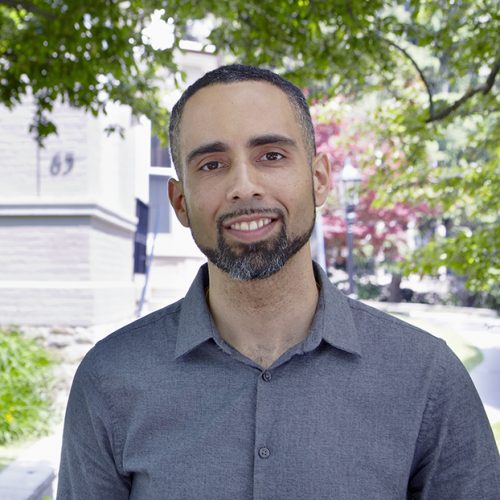Julius Haag

Julius Haag
PhD Candidate, Criminology & Sociolegal Studies
“I have worked with several community partners to improve the outcomes of racialized and marginalized youth in the GTA.”
After undergraduate [studies], I spent some time in business before returning to the University of Toronto to complete my master’s degree in Sociology. I met Prof. Scot Wortley and began working with him as a research assistant on an evaluation of a youth gang prevention and intervention initiative here in Toronto. Following my MA, I took a year off and continued to work on the evaluation project. I’m now completing my PhD with Prof. Wortley as my doctoral supervisor. I am also a co-investigator with Prof. Wortley on a research project funded by the Neighbourhood Change Research Partnership, an SSHRC-funded initiative examining income inequality and socio-spatial polarization trends in major metropolitan areas.
My focus is on scholarship that is both critical and policy relevant. My dissertation focuses on the impact of policing on youth and their communities and how experiences with police-citizen contacts affect perceptions of the police, other social institutions, and Canadian society. While at U of T, I have worked with several community partners on various initiatives to improve the outcomes of racialized and marginalized youth in the GTA [Greater Toronto Area]. In Canada, compared to the United States, we suffer from a relative lack of scholarship that examines the intersections of race and the criminal justice system, and even less that considers the lived experiences of youth who are disproportionately targeted by the police.
I considered several different institutions in the U.S. and Canada. However, the focus of my scholarly interests was on issues of race and criminal justice in Canada. I contacted Prof. Wortley, and he invited me to a meeting where we discussed our mutual research interests, graduate studies at U of T, and my chosen course of study. The Centre for Criminology and Sociolegal Studies offers an uncommon environment that is both “open door” and very collegial. I have had the opportunity to develop relationships with many leading scholars in my field and a host of talented graduate scholars.
The Centre also is fortunate to have its own library onsite, the leading Canadian research collection of criminological material. More broadly, U of T is fortunate to have one of the most comprehensive library systems in the world. The opportunity to collaborate with so many amazing scholars and to live and work in the heart of downtown Toronto proved to be the best possible opportunity for me.
My committee have been instrumental in guiding my applications for external funding, helping me to identify funding opportunities and providing feedback and references for proposals. With their help I secured funding from external sources, including a three-year Social Sciences and Humanities Research Council Fellowship, the Ontario Graduate Scholarship, various smaller awards, and multiple travel grants.
I was an invited panelist at the 2018 Harvard-Kennedy School Black Policy Conference in Cambridge, MA. I have also been an invited participant at various workshops, including the 2017 Radical Democracy, Crime and Network Summer Workshop at Rutgers, the 2017 Canadian Network for Research on Terrorism, Security and Society Summer Workshop at Carleton, and the 2014 Yale Urban Ethnography Project Conference. Having the opportunity to present my work and to network with other scholars and professionals has been one of the most rewarding and productive aspects of my academic career.
My future goal is work as a professor. I also remain committed to collaborating with community groups and plan to continue working on issues related to program funding, design, and evaluation. I am grateful that so many organizations and communities across the GTA have welcomed me and allowed me to work with them and learn from them.
